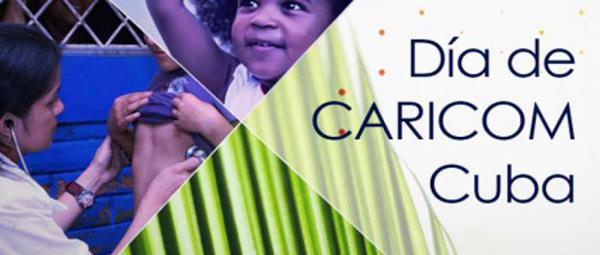
“The successful evolution of Caricom, the involvement of all its member states and Cuba with the Community of Latin American and Caribbean States (CELAC) and the Association of Caribbean States (ACS) as well as the participation of some of us in the Bolivarian Alliance of the Peoples of Our America (ALBA-TCP) and Petrocaribe have helped to advance regional integration, and we should continue working for its consolidation,” stated Army General Raúl Castro Ruz, President of the Councils of State and Ministers of Cuba, a year ago, during the inauguration of the 5th Caricom-Cuba Summit, held in Havana.
It was decided to celebrate Caricom-Cuba Day every December 8, during the first summit, which took place in Havana in 2002, initially intended to function as an encounter between heads of state and government to commemorate 30th years since of the establishment of diplomatic relations between the Island and a series of Caribbean nations, which during the 1970s broke the yoke of colonial domination and secured their independence.
Another outcome of the 2002 event was the decision to hold summits every three years in December, in order to strengthen exchanges and review cooperation efforts, with the location alternating between Cuba and another Caricom country.
The island and the organization have developed a framework of economic and policy ties cemented in solidarity, cooperation and complimentarity, constituting a reference for large-scale integration efforts across Latin America and the Caribbean.
In the sphere of cooperation, over 1,000 Cuban professionals are offering services in Caricom nations, while around 100,000 patients have already benefited from Operation Miracle.
Furthermore, countless students from countries in the region have graduated from Cuban universities, who have then returned to their nations of origin and communities, with the deep conviction to serve and contribute to their peoples’ development.
Caricom was created July 4, 1973 with the signing of the Chaguaramas Treaty in Trinidad and Tobago, which aims to transform the Caribbean Free Trade Association into a common market.
The organization includes Antigua and Barbuda, the Bahamas, Barbados, Belize, Dominica, Grenada, Guyana, Haiti, Jamaica, Montserrat, Saint Kitts and Nevis, Saint Lucia, Saint Vincent and the Grenadines, Surinam, and Trinidad and Tobago.
Functioning as observer nations are Mexico, Venezuela, Aruba, Colombia, the NetherlandsAntilles, Bermuda, the Dominican Republic and Puerto Rico, while the British Virgin Islands, Anguilla, the Cayman Islands and the Turks and Caicos Islands are associated states.








